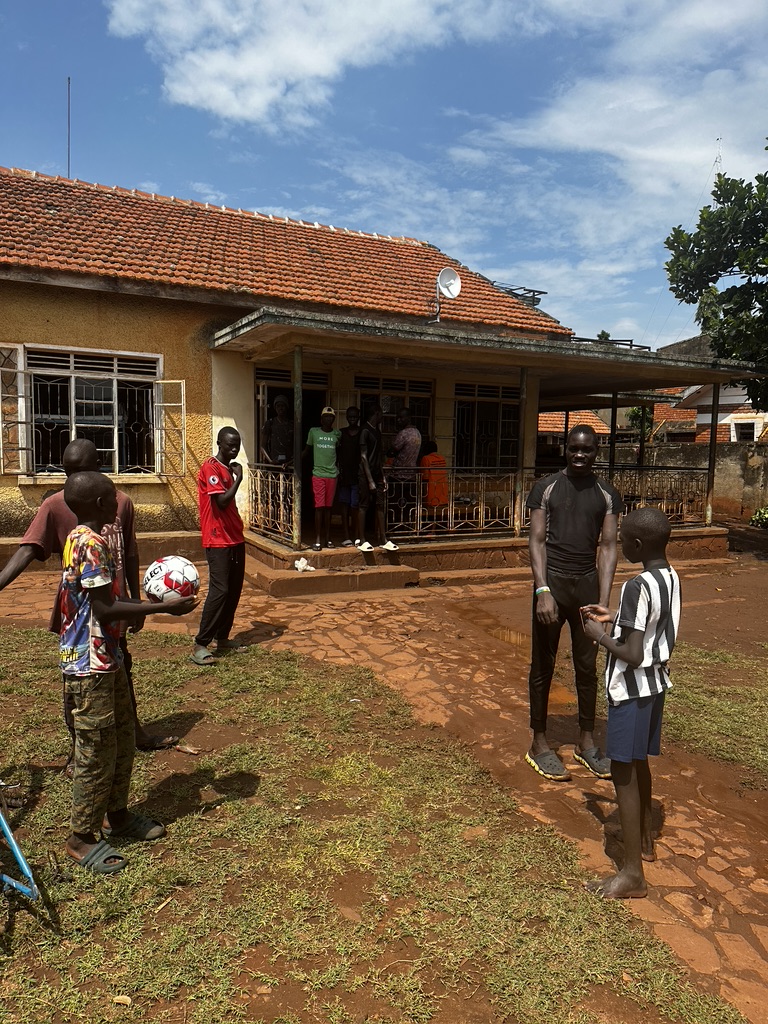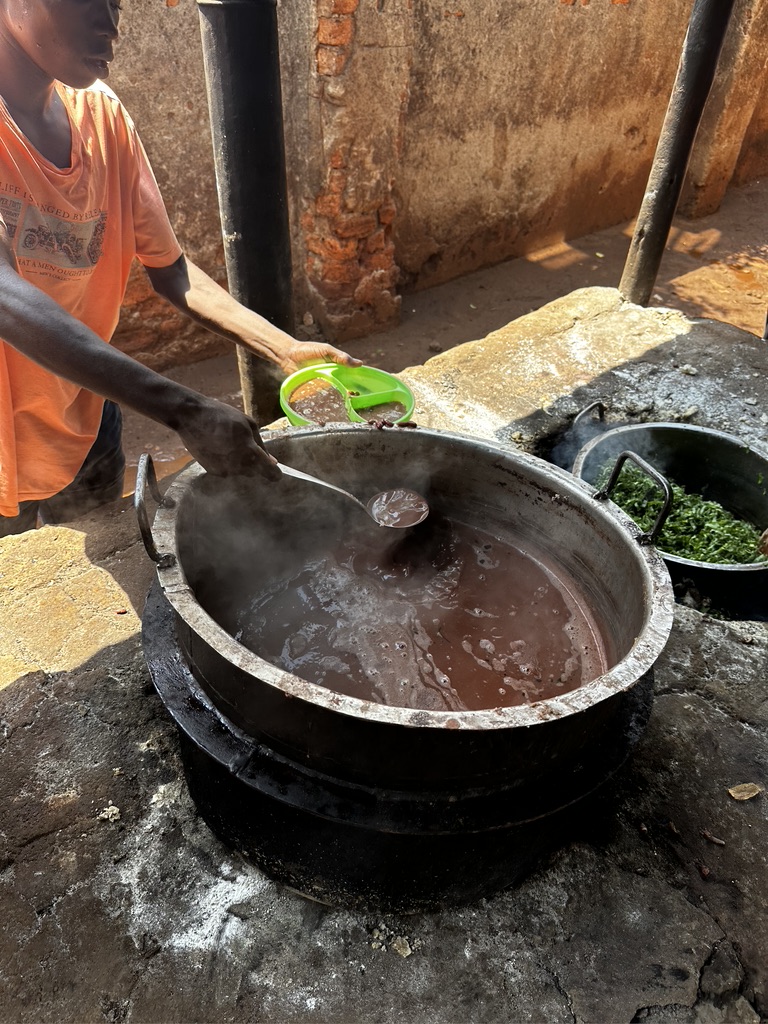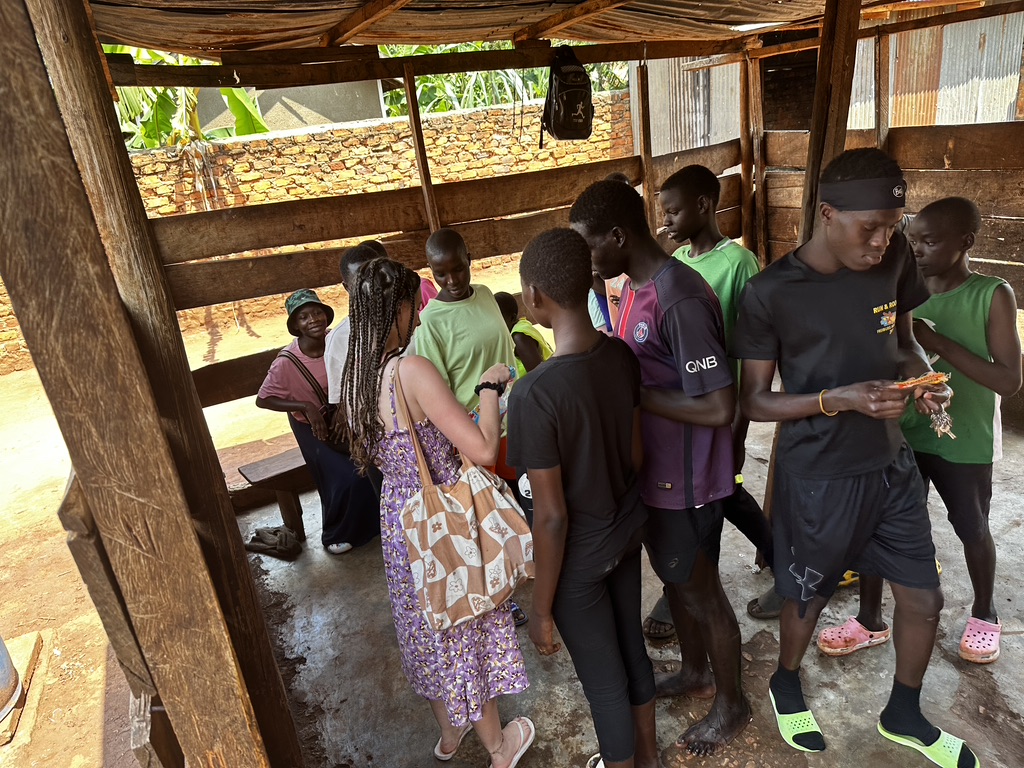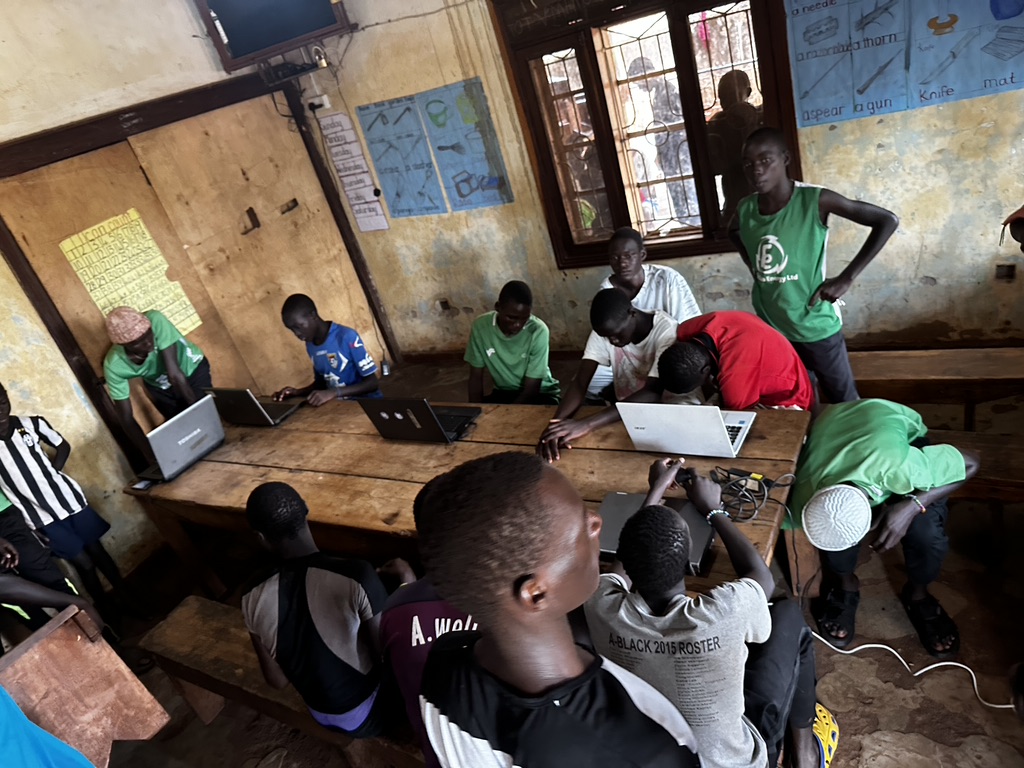Pioneer Paul Lindley’s 1MC Visit
Reflections from one Ride25 Pioneer’s family visit to 1morechild
By Paul Lindley

Early one morning last September the wheels of our Kenya Airways plane touched down onto the fertile, red earth and green vista-ed, land just outside Entebbe at the start of our Lindley family two week holiday. As we taxied to the airport building, my mind raced around the memory creating experiences that would be collected in the coming fortnight: chimpanzees, gorillas and white water rafting being likely highlights, but perhaps it was our plans for the next day that were most exciting! Finally, over 12 years after starting Leg 1 of a new, mad idea that was Ride25, I would finally get to visit 1morechild and meet its children and staff!
I grew up in Africa, some 1,500 miles to the south of Jinja, home city to 1morechild. I have also been involved in children’s charities and acutely aware of Africa’s challenges since that time. I thought I knew what we were likely to experience, and sure enough, the next day, as we rounded the final corner of a residential suburb of Jinja and pulled up outside the iron panelled gates of the main ‘home’, I felt a familiar sense of being able to anticipate what was coming. But I was wrong. 1morechild is unique – from its vibe to its model, from its characters to its impact, and of course to the way in which its funds are raised. The next eight hours enriched my life, and caused me pause for thought, like I wasn’t expecting.
1morechild currently supports some 140 children and young people – aged between about 10 to 20 years old. All come from families and backgrounds in a remote rural area of Uganda’s northeast corner– a LONG way from Jinja and the vast majority have been at the ‘home’ for many years. As a consequence, the children know each other really, really well, and care for each other deeply. This was perhaps my first – and overriding – experience whilst at the home – the sense of a happy, secure, caring place, where friendship and kinship is strong, and children care and support each other and teachers and carers, well, care passionately about their charges and their work. This sense was palpable. Despite all its difficulties, in spite of all the challenges this community faces, its goal to create a secure, safe, caring and loving space for vulnerable children has been achieved, Harry and Hen’s legacy, their vision, is being lived – and they should be very proud of that.
A central reason that this is my core memory, is in its local leadership, especially of Bosco and the culture he has forged. Bosco manages 1morechild’s day to day, month on month and year on year operations, and partners with Harry and Hen on its long term strategy and goals. As a social worker by both training and mindset, he is the perfect leader, ‘uncle’ to the children and effective administrator of the logistics of housing, feeding and education of so many young people. All of these young people have aspirational ambitions, but all also couple these with evident poverty and challenges to opportunity, and many with further complex needs and psychological barriers to face and overcome. Bosco welcomed our family, shared the opportunities and challenges of his work with equal weight, and left us with a sense of humility and confidence that the most basic mission in creating a safe, caring community and space for vulnerable children, is being achieved and is in great hands. He, the team, and the children were most grateful for the two suitcase of clothes, kit and parts that so many Ride25 pioneers had gifted and that we were able to transport.
A mini aside here …… we had also brought 10 laptops, cameras and microphones to leave (John Readman), but during an ‘interesting’ 90 minute ‘interview’ and discussion with Customs Officers at the airport the day before, five, together with $250, were impounded.
The second lasting memory that quickly formed, was of how busy the children were. How engaged in different and varied activities they each were. 1morechild’s community is spread over six or so houses, each home to a few dozen children, spread over a square mile or so of the suburb. We were there during school holidays and the children were all engaged in activities from chess to study, from playing football to hair braiding, from cooking to cleaning, and – yes! – from bike maintenance (a mechanic was there that day (a former professional cyclist and ‘mate’ of Mark Cavendish!)) to club cycling. The energy of such activities, the sense of purpose, dovetailed into the sense of security and caring perfectly. I previously shared via the WhatsApp group a couple of conversations with one of the cycle club boys and with the mechanic.
My son and I played football with one group of children, whilst my wife and daughter were invited to a girls house, where the girls shared their ambitions for fashion and law and skills in hair braiding and creativity. I got the opportunity to talk with staff about challenges, and financial difficulties, and with the cycling club members about how and why bicycles and cycling gave them pleasure and skills -and how the role models that the club has produced – with our indirect support (direct for Andy Helme and others) has helped them with ambition and persistence in life.
Another core memory of our day, also evident from the first moments on site, and much less uplifting, is the paucity of resources available, and the poverty within which the community lives. Teenagers’ bedrooms each house 8-10 boys or girls and offer no personal space for their minds and bodies or their (very few) personal possessions. The rooms have bunk beds and basically nothing else. The cooking and eating areas (the house we were in was the house where all children came to eat) were in the back lot, and whilst we were there some children were busy cooking lunch for them all. Lunch was beans, cabbage and posho (porridge maize meal) that day. It is the same virtually every day. Dinner was virtually exactly the same that day. It is every day. Breakfast is different. It is nothing. Even on school days. I must admit, despite my experience of children’s homes across Africa, I was quite shocked by this. I strongly feel food is a centre piece of a community’s culture, it is critical for learning and for a healthy body. We, literally, are what we eat. So, I came away thinking that as we think about new ways to raise money, I wonder if we might dedicate a sum raised specifically for a daily supply of eggs for breakfast before school, a daily glass of milk on return, and an opportunity for a small amount of variety to make mealtimes enjoyable as well as functional. That has become my challenge to myself. I was able to talk to one young man about his thoughts on this:
I hope that this observation, this personal impression I took away, is not read as any critique of the team on site, or of their allocation of inadequate budgets and funds, nor of the priorities of anyone involved in this amazing organisation that is an absolute game changer for the trajectory of over 140 young lives. Moreover, I hope it helps us consider if we can raise some specific funds to help the mundane, but vital, provision of breakfast every day, become a reality. (NB: Update from Harry – since our visit some ‘friends of 1morechild’, who used to live in Jinja, have fundraised to provide some breakfast in the short term!)
So our day ended, with new friendships, a greater understanding of the realities of caring for 140 young people in a challenging physical and economic environment and a new set of memories burning a determination to continue to support two wonderful, optimistic, passionate and effective communities. One in Jinja, that had just filled me with humility, and the other shortly to be in Tbilisi, that fills me with pride and purpose and which has, does and will continue to make such a difference to so many lives. I feel blessed to know and be part of both. Harry, Rob, John and Andy (amongst many others have created a incredible way for 200 or so Pioneers and Founders and 200 or so Ugandan children and teachers/carers to connect and care about each other emotionally, economically, and socially – all through the power of a bicycle and the need to pedal to change lives. Thank you each.
Keep smiling!





